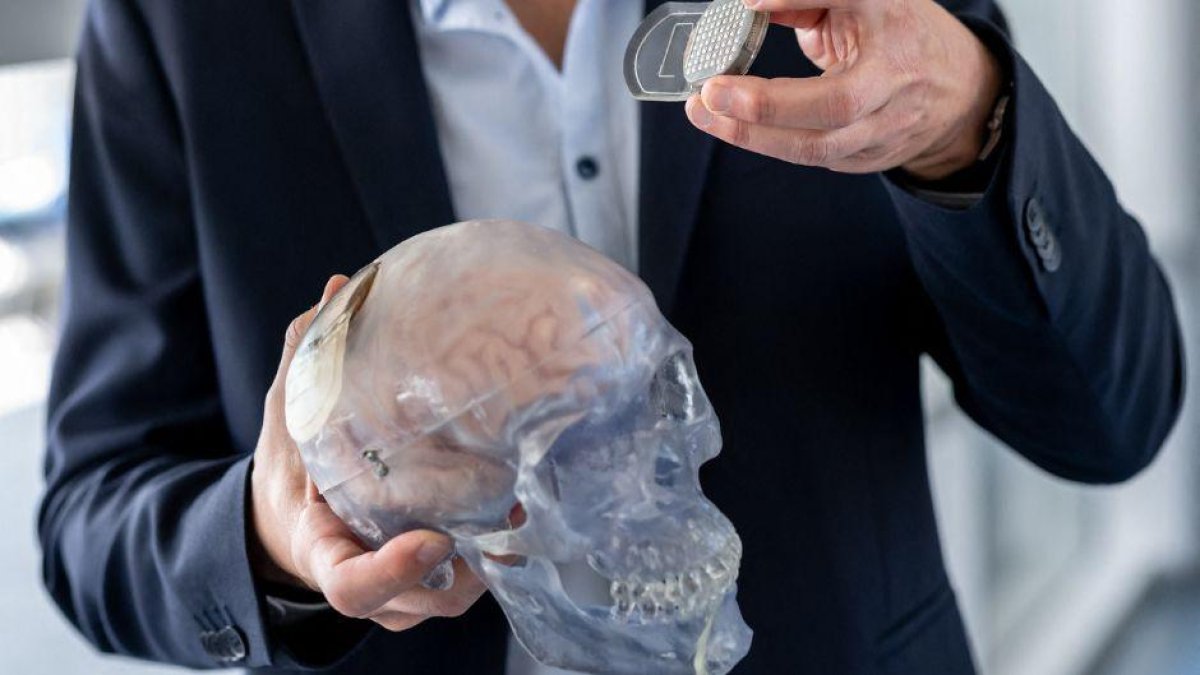Paradromics, a Neuralink competitor, successfully implants chip in human brain
The company performed the procedure on a patient with epilepsy to learn about the behavior of his disease. The device remained in his brain for 20 minutes.

Image of a brain-computer interface
Biotech startup Paradromics, Inc., reported that it successfully performed the temporary implantation of a brain-computer interface (BCI) in a human brain.
Specifically, the device, which is smaller than a dime, remained in the brain of a patient who underwent a temporal lobectomy to treat epilepsy for about 20 minutes, until it was removed.
The procedure was led by Dr. Matthew Willsey, a neurosurgeon and biomedical engineer at the University of Michigan, and Dr. Oren Sagher, director of functional neurosurgery at U.M. Health.
"This was a tremendous achievement to be able to implant for the first time this BCI. ... With this technology, we can record information from the brain in a way that we haven’t been able to before. What we're working on right now may eventually allow for either replacement or restoration of motor or speech function for people with disabilities," Dr. Willsey noted after the procedure.
The BCI is a device that can be used to assess neurological diseases like epilepsy and to learn how the brain behaves in people with motor disabilities and nervous system problems, such as paralysis.
"What we're working on right now may eventually allow for either replacement or restoration of motor or speech function for people with disabilities. I really feel like we're at an inflection point in the field of brain-computer interfaces — a time of rapid growth. Our research and collaboration with motivated industry partners moves us toward our vision of curing a condition like paralysis," concluded Dr. Willsey.
Neuralink has already successfully implanted chips in the human brain
In January 2024, Elon Musk announced that Neuralink successfully implanted a chip in a human brain for the first time in the company's history. According to the entrepreneur, the goal of "Telepathy," as he called the chip, was for that patient to be able to control an electronic device without touching it.
"[The chip] allows you to control your phone or computer, and through them almost any device, just by thinking. The initial users will be those who have lost the use of their limbs," Musk said.
Months later, in August, a second patient underwent the same procedure, and the results, again, were successful.

























